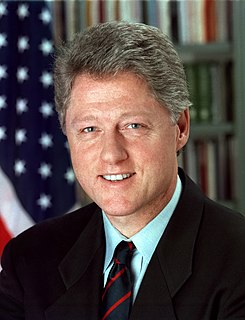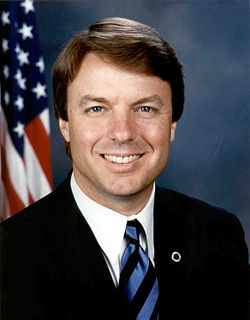Related Research Articles

The 1996 United States presidential election was the 53rd quadrennial presidential election, held on Tuesday, November 5, 1996. Incumbent Democratic President Bill Clinton defeated former Senate Majority Leader Bob Dole, the Republican nominee, and Ross Perot, the Reform Party nominee.

The New Hampshire presidential primary is the first in a series of nationwide party primary elections and the second party contest held in the United States every four years as part of the process of choosing the delegates to the Democratic and Republican national conventions which choose the party nominees for the presidential elections to be held the subsequent November. Although only a few delegates are chosen in the New Hampshire primary, its real importance comes from the massive media coverage it receives. Spurred by the events of the 1968 election, reforms that began with the 1972 election elevated the two states' importance to the overall election, and began to receive as much media attention as all of the other state contests combined. Examples of this extraordinary coverage have been seen on the campuses of Dartmouth College and Saint Anselm College, as the colleges have held multiple national debates and have attracted media outlets like NPR, Fox News, CNN, NBC, and ABC. The publicity and momentum can be enormous from a decisive win by a frontrunner, or better-than-expected result in the New Hampshire primary. The upset or weak showing by a front-runner changes the calculus of national politics in a matter of hours, as happened in 1952 (D), 1968 (D), 1980 (R), and 2008 (D).

Endicott Howard Peabody was an American football player and politician from Massachusetts. A Democrat, he served a single two-year term as the 62nd Governor of Massachusetts, from 1963 to 1965. His tenure is probably best known for his categorical opposition to the death penalty and for signing into law the bill establishing the University of Massachusetts Boston. After losing the 1964 Democratic gubernatorial primary, Peabody made several more failed bids for office in Massachusetts and New Hampshire, including failed campaigns for the U.S. Senate in 1966 and 1986.

This article is an annotated list of candidates associated with the 2008 Democratic Party presidential primaries for the 2008 United States presidential election.
The following is a timeline of major events leading up to and immediately following the United States presidential election of 2008. The election was the 56th quadrennial United States presidential election. It was held on November 4, 2008, but its significant events and background date back to about 2002. The Democratic Party nominee, Senator Barack Obama of Illinois, defeated the Republican Party's nominee, Senator John McCain of Arizona.
The 2008 presidential campaign of John Edwards, former United States Senator from North Carolina and Democratic nominee for Vice President in 2004 began on December 28, 2006 when he announced his entry into the 2008 presidential election in the city of New Orleans near sites devastated by Hurricane Katrina. On January 30, 2008, Edwards returned to New Orleans to announce that he was suspending his campaign for the Presidency. On May 14, 2008, he endorsed Barack Obama at a campaign event in Grand Rapids, Michigan.
Debates took place prior to and during the 2008 Democratic primaries. The debates began on April 26, 2007, in Orangeburg, South Carolina.

The 2008 United States presidential election in Iowa took place on November 4, 2008, as part of the 2008 United States presidential election. Voters chose seven representatives, or electors to the Electoral College, who voted for president and vice president.

The 2008 United States presidential election in Massachusetts took place, as in all 50 states and D.C., as part of the 2008 United States presidential election of November 4, 2008. Voters chose 12 representatives, or electors to the Electoral College, who, in turn, voted for the office of president and vice president.

From January 24 to June 6, 2000, voters of the Democratic Party chose its nominee for president in the 2000 United States presidential election. Incumbent Vice President Al Gore was selected as the nominee through a series of primary elections and caucuses culminating in the 2000 Democratic National Convention held from August 14 to 17, 2000, in Los Angeles, California, but he went on to lose the Electoral College in the general election against Governor George W. Bush held on November 7 of that year, despite winning the popular vote by 0.5%.

Electoral history of John Edwards, United States Senator from North Carolina (1999-2005), 2004 Democratic Vice Presidential nominee and candidate for Presidential nomination in 2004 and 2008

Electoral history of Christopher Dodd, senior United States senator from Connecticut (1981–2011), United States Representative (1975–1981), Democratic National Committee chairman (1995–1997) and a candidate for the 2008 Democratic presidential nomination

Electoral history of Ralph Nader, an American attorney, author, lecturer, political activist, and candidate for President of the United States in four elections.

Electoral history of Mike Gravel, Speaker of the Alaska House of Representatives (1965–1966), United States Senator from Alaska (1969–1981), candidate for the 1972 Democratic Party Vice Presidential nomination and 2008 Democratic and later Libertarian Presidential nomination

Electoral history of Bill Richardson, 30th Governor of New Mexico (2003–2011), 9th United States Secretary of Energy (1998–2001), 21st United States Ambassador to the United Nations (1997–1998), U.S. Representative from New Mexico's 1st district (1983–1997) and a candidate for the 2008 Democratic nomination for President of the United States

Electoral history of Dennis Kucinich, United States Representative from Ohio's 10th district (1997–2013), 53rd Mayor of Cleveland (1977–1979) and a candidate for Democratic Presidential nomination in 2004 and 2008

The 2000 United States presidential election in New Hampshire took place on Election Day on November 7, 2000 as part of the 2000 United States presidential election. The 2 major candidates were Texas Governor George W. Bush of the Republican Party and sitting Vice President Al Gore of the Democratic Party. When all votes were tallied, Bush was declared the winner with a plurality of the vote over Gore, receiving 48% of the vote to Gore's 47%, while Green Party candidate Ralph Nader received almost 4% of the vote in the state. Bush went on to win the election nationwide. Had incumbent Vice President Gore come out victorious with New Hampshire and its four electoral votes, he would have won the presidency. As of the 2020 presidential election, this is the last time that the Republican nominee carried New Hampshire. It also marked the last time that a Republican won any electoral votes in New England, until Donald Trump won Maine's 2nd congressional district in 2016, and the last time a Republican won any state in the Northeastern United States until Donald Trump won Pennsylvania in 2016.

The 2008 United States presidential election in New Hampshire took place on November 4, 2008, as part of the 2008 United States presidential election throughout all 50 states and D.C. Voters chose four representatives, or electors to the Electoral College, who voted for president and vice president.

This article contains lists of candidates associated with the 2016 Democratic Party presidential primaries for the 2016 United States presidential election.